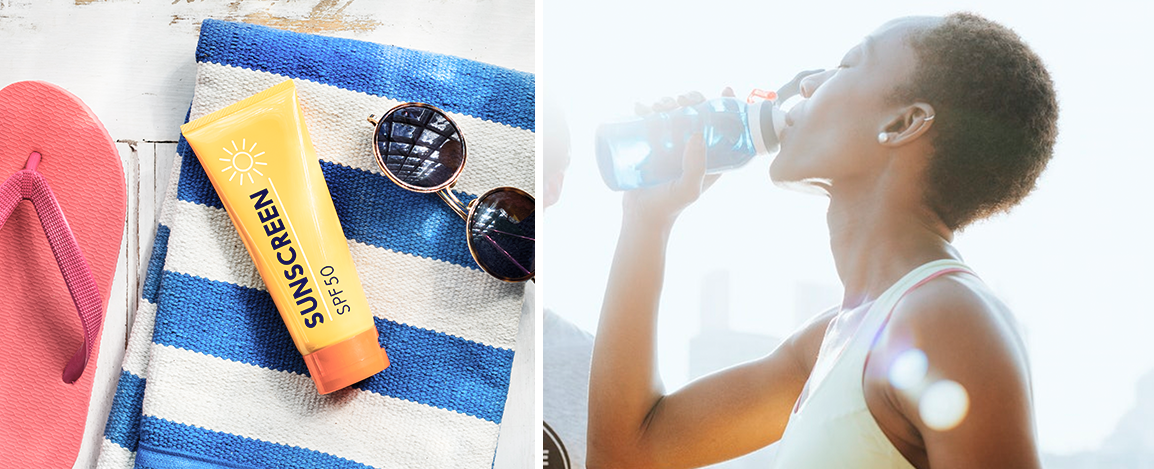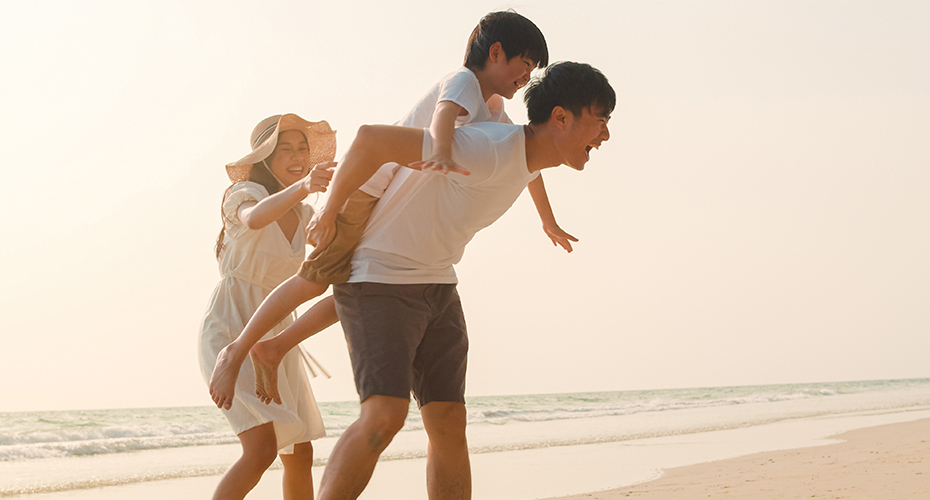Jun 27, 2024
Enjoying summer safely
As summer vacation season kicks off, taking commonsense precautions to avoid sun, heat and insect-borne illnesses can help ensure a fun and safe season.
Follow these summer safety tips:

- Stay sun safe
Apply sunscreen with an SPF of at least 30 and broad-spectrum UVA and UVB protection on all exposed skin, and reapply it every two hours regardless of SPF rating or more if you are swimming or sweating. “Consider a mineral-based sunscreen instead of a chemical-based one because it reflects UV rays away from the skin, and make putting it on part of your everyday routine like eating breakfast and brushing your teeth,” says Dr. Ashley Yeats, a family physician and VP of medical operations at Blue Cross Blue Shield of Massachusetts. Wear sunglasses, a broadbrimmed hat and long-sleeved shirt or clothing with built-in sun protection, and try not to go outside midday when the sun is most intense. Yeats also advises doing monthly skin checks according to the ABCDEs to help identify concerning moles: Asymmetry (half of the mole doesn’t match the other), Border irregularity, Color that is not uniform, Diameter greater than 6 millimeters (about the size of a pencil eraser), and Evolving size, shape or color.
- Keep critters away
Yeats advises applying insect repellant with EPA registered active ingredients such as DEET that are appropriate for the age of the person to ward off ticks and mosquitoes that can carry and transmit Lyme Disease, West Nile Virus and eastern equine encephalitis (EEE), and to bathe before bed to wash it off. Yeats also recommends wearing pants tucked into long socks, especially if you will be hiking or walking in high grass, and avoiding activities at dawn and dusk. When you come in from the outdoors, check your skin for ticks and a bullseye rash that can indicate a tick bite. “Symptoms of Lyme disease, West Nile and EEE are fever and lethargy—unfortunately the same as COVID-19,” Yeats says. If you notice these symptoms, call your doctor and discuss your recent activities.
- Stay cool and hydrated
As temperatures and humidity climb, Yeats notes it’s important to guard against dehydration and heat stroke by staying cool. “The very young and very old are less capable of dispersing body heat than others,” she said, so special care should be taken to keep babies and the elderly cool. Drink plenty of water: “If you are thirsty, you are past the point when you don’t have enough water in your body.” Make sure you have a fan or air conditioner or cool down by putting a cold washcloth on your neck. Additionally, she recommends checking in on elderly relatives, friends and neighbors, especially now, when many of the climate-controlled places these folks used to go to, such as the mall or senior center, may be closed because of the pandemic. Yeats says to be on the lookout for signs of heat-related illnesses, including a rash, fever, nausea, light-headedness and fatigue.
If you have a medical concern, Yeats says, call your primary care provider as a first step.
“It’s important to be prepared and take these necessary precautions,” Yeats says. “But the good news is that many of these conditions, including moles, rashes and bug bites, are highly amenable to being evaluated and screened through telehealth.”
“We want you to get outside with your family and go for runs and hikes and bike rides,” Yeats says. “But we also want you to be safe.”

PICTURE OF DR. ASHLEY YEATS BY MICHAEL GRIMMETT

